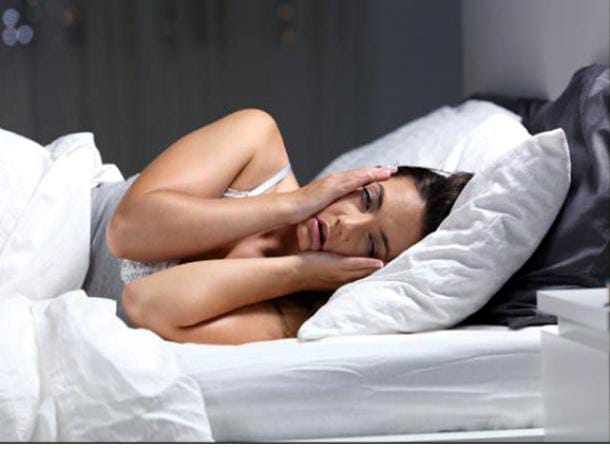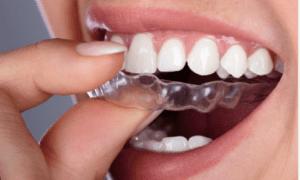Sleep troubles affect millions of people worldwide. Statistics suggest that as many as 70% of Americans report not getting the recommended seven hours of sleep each night. You’re certainly not alone if you struggle with quality rest – over one-third of adults globally report experiencing insomnia symptoms at some point in their lives.
The search for effective sleep solutions has led many to consider CBD for insomnia as a potential natural alternative. Unlike conventional treatments that often come with unwanted side effects, CBD has gained attention for its possible sleep-promoting properties without the morning grogginess that typically accompanies sleep medications.
What does the research actually tell us about CBD and sleep? Studies suggest that CBD may significantly increase sleep duration, and a systematic review of 34 studies found that all reported improvement in insomnia symptoms for at least some participants. Research indicates that both CBD-predominant therapies and those with nearly equal ratios of CBD to THC have shown potential benefits for sleep.
But does CBD work for sleep in all cases? How should you use it effectively? From oils and capsules to patches, the options can feel overwhelming when you’re already struggling with sleepless nights.
We asked sleep researchers and healthcare professionals to examine the evidence around CBD for insomnia. What is CBD, how might it affect your sleep, and is it safe to use? This guide will help you understand what the research actually says about CBD’s potential for improving sleep quality and how to use it safely if you’re considering it as an option.
Understanding CBD and Its Role in Sleep
Sleep troubles can make exploring natural alternatives feel overwhelming. Cannabidiol has emerged as a potential option worth considering—particularly for those seeking alternatives to conventional sleep medications.
What is CBD?
Cannabis sativa, the plant from which CBD is derived, contains over 100 chemical compounds called cannabinoids. Cannabidiol, commonly known as CBD, is the second most prevalent active ingredient in cannabis, accounting for up to 40% of the plant’s extract.
Unlike some other cannabis compounds, CBD can be sourced from hemp—a specific variety of cannabis that contains minimal amounts of psychoactive substances.
Hemp plants are specifically cultivated for their fibres and high CBD content from which oil can be extracted. According to legal standards, industrial hemp must contain less than 0.3% THC to be considered legal. The 2018 Farm Bill changed hemp’s classification, removing it from the list of controlled substances in the United States, which has led to increased availability of hemp-derived CBD products.
CBD works primarily by interacting with your body’s (ECS)—a vast receptor network that constantly works to maintain balance across nearly every system in your body, including the sleep-wake cycle. Through this interaction, CBD may help address imbalances in inflammation, brain health, pain, and stress responses.
How does CBD differ from THC?
CBD is different from tetrahydrocannabinol (THC)—also a substance from the cannabis plant. The latter is responsible for the ‘high’ typically associated with marijuana. CBD, however, is non-intoxicating, and unlike THC, does not cause a “high” or alter consciousness. This non-intoxicating nature makes CBD an appealing option for those seeking potential therapeutic benefits without psychoactive effects.
Key differences between CBD and THC include:
Psychoactivity: THC produces mind-altering effects, whereas CBD does not have psychoactive properties
Source concentration: Hemp plants have higher levels of CBD and minimal THC, whilst marijuana contains higher THC concentrations and less CBD
Dependency risk: According to a World Health Organisation report, “CBD exhibits no effects indicative of any abuse or dependence potential”
Functional impact: A study in the journal Neuropsychopharmacology concluded that “acute CBD alone is unlikely to significantly impair daily functioning or workplace performance”
Additionally, these compounds interact differently with your endocannabinoid system. CBD and THC are plant-derived cannabinoids that engage with your body’s receptors in distinct ways, potentially explaining their differing effects on sleep.
Does CBD help with sleep?
The research on CBD for sleep presents a complex picture. CBD demonstrates biphasic properties, meaning its effects vary depending on dosage. At lower doses, CBD appears to promote alertness, whilst higher doses may induce sleepiness. This dosage-dependent effect occurs because CBD can lower cortisol levels by downregulating the corticotropin-releasing hormone gene, potentially fostering sedation.
Scientific evidence shows promising results for specific sleep-related conditions. Studies indicate that CBD may reduce symptoms of REM sleep behaviour disorder and excessive daytime sleepiness. Moreover, in patients with Parkinson’s disease, CBD (75-300mg) significantly enhanced sleep satisfaction in a phase II/III double-blind, placebo-controlled clinical trial.
However, research specifically focused on insomnia remains limited. A systematic review found that of 34 studies examining CBD and sleep, all reported improvement in insomnia symptoms for at least some participants. Among these studies, 4 of 7 using CBD-predominant therapy and 12 of 16 using nearly equal CBD:THC ratios reported significant improvements in sleep outcomes.
It’s important to note that only 2 of these 34 studies specifically focused on patients diagnosed with insomnia. Furthermore, many sleep improvements observed in clinical settings may result from CBD’s effects on underlying conditions rather than direct sleep enhancement. For instance, if pain or anxiety keeps you awake, CBD might help you sleep better by addressing these primary issues.
High-dose CBD may influence sleep more directly. A crossover study found that high-dose CBD at 160 mg increased sleep duration. Similarly, another crossover study showed that oral CBD (300 to 600 mg) significantly decreased plasma cortisol levels, though patients experienced a sedative effect.
Despite these promising findings, the research landscape remains incomplete. Currently, there’s no study that has used CBD on its own in any substantial trial specifically focused on insomnia. Additionally, many studies relied on subjective measures rather than objective sleep assessments.
For sleep-specific applications, CBD’s effectiveness may relate to specific ingredients it contains, including cannabinol (CBN) and cannabigerol (CBG). often combined these cannabinoids with other relaxation-promoting ingredients like ashwagandha, melatonin, chamomile, or valerian root.
How CBD Works in Your Brain to Affect Sleep
The mechanisms behind CBD’s potential sleep benefits involve several brain systems that regulate your sleep-wake cycle. Understanding how CBD interacts with these systems helps explain why it might help some people with insomnia.
Brain Chemistry and Sleep Regulation
CBD affects multiple brain chemicals that influence sleep. The compound interacts with your body’s serotonin system, which plays a crucial role in regulating both mood and sleep-wake cycles. Research shows that CBD affects mood through the serotonin system by . This interaction helps create a balanced emotional state that could indirectly improve sleep quality.
The neurological effects are more complex than they initially appear. CBD decreases the firing rate of serotonin neurons in the dorsal raphe nucleus of the brainstem, an action prevented by administering 5-HT1A receptor antagonists. Interestingly, repeated CBD treatment can increase serotonin firing through desensitisation of these same receptors. These effects on serotonergic neurotransmission may explain some of CBD’s sleep-regulating properties.
CBD also significantly affects GABA, the primary inhibitory neurotransmitter in your brain. Studies demonstrate that CBD at both pre- and post-synaptic levels. By enhancing GABA receptor efficacy, CBD may promote relaxation and sleep onset. This GABA-enhancing effect likely contributes to CBD’s reported benefits for insomnia, especially when sleep difficulties stem from anxiety or overactive brain states.
Effects on Your Sleep Cycle
CBD appears to influence various sleep stages differently. Studies in rats found that CBD injections increased total percentage of sleep, with lower doses decreasing REM sleep latency (time to enter REM) and higher doses increasing it. This suggests CBD might affect the architecture of your sleep cycle depending on dosage.
Evidence indicates CBD produces biphasic effects—low doses promote wakefulness whilst higher doses can induce sedation. This occurs because CBD can lower cortisol levels by downregulating the corticotropin-releasing hormone (CRH) gene, potentially fostering sleep since corticosteroids normally enhance wakefulness.
Research also suggests CBD affects your through multiple pathways. A study found that CBD induces deregulation of circadian genes in microglial cells, affecting genes like Arntl and circadian rhythm clock that controls 24-hour rhythmic regulation. Furthermore, in a recent study, oral CBD administration extended natural non-REM sleep, especially toward the end of the sleep period. However, it simultaneously made sleep oscillations smaller in amplitude and altered their frequencies, which might affect sleep quality.
Calming an Overactive Mind
CBD’s ability to reduce hyperarousal may be particularly beneficial for those with insomnia. When you feel too alert to fall asleep, CBD demonstrates promising results in calming the nervous system. Nearly 80% of participants in one study reported lower anxiety levels within a month of using CBD.
The neurobiological basis for this calming effect involves CBD’s impact on the limbic and paralimbic systems. It decreases activity in the amygdala and hypothalamus, reducing hypervigilance and hyperarousal. These brain regions are central to your body’s stress response, and their overactivity often underlies insomnia linked to anxiety or post-traumatic stress disorder.
For those with , CBD shows particular promise. Its effects on the endocannabinoid system and key brain regions involved in fear processing may help decrease nightmares and improve sleep quality. Initial studies suggest CBD may offer a therapeutic option for PTSD patients by addressing both the emotional and sleep-related symptoms of the condition.
What Does Research Actually Say About CBD for Insomnia?
Scientific research examining CBD’s effectiveness for insomnia has expanded in recent years, providing valuable insights about its potential benefits and limitations. This growing body of evidence helps clarify when and how CBD might serve as an effective sleep aid.
Clinical trials and systematic reviews
A systematic review analysing 34 studies found that all studies reported improvement in insomnia symptoms for at least some participants. However, research quality varies significantly across studies. Among these investigations, only two specifically focused on patients diagnosed with insomnia, highlighting a critical gap in targeted research.
Studies examining CBD for sleep generally fall into two categories: those examining single-dose effects and those tracking longer-term usage. One crossover study found that increased sleep duration, whilst another demonstrated that plasma cortisol levels decreased more significantly with oral CBD at doses between 300-600 mg.
More recently, a clinical trial explored the efficacy of 150 mg CBD compared with placebo as a sleep aid in primary insomnia. Although this study found that insomnia severity, self-reported sleep-onset latency, and did not differ substantially between treatments, the CBD group demonstrated greater well-being scores throughout the trial and superior objective sleep efficiency after two weeks of treatment.
CBD-only products versus CBD+THC combinations
Current evidence suggests differences in effectiveness between CBD-only products and those combining CBD with THC. Of the 34 studies in the systematic review, 19 used CBD-predominant therapy, whilst 21 used nearly equal ratios of CBD to THC. Among studies performing hypothesis testing, 4 of 7 with CBD-predominant treatments reported significant improvement in insomnia outcomes, compared to 12 of 16 using nearly equal CBD:THC ratios.
This differential effect may stem from THC’s stronger sedative properties. THC has been shown to reduce sleep latency and increase sleepiness, yet potentially impair memory. Conversely, CBD may decrease stage three sleep whilst counteracting next-day drowsiness. Their contrasting mechanisms suggest potential complementary effects when combined.
Another study examined a formulated blend (ZTL-101) containing 10 mg THC, 1 mg cannabinol (CBN), and 0.5 mg CBD in patients with chronic insomnia disorder. Results revealed substantial improvement in subjective sleep quality and noteworthy increases in scores on the Insomnia Severity Index.
What people report versus what sleep studies measure
The distinction between subjective and objective sleep improvements remains a crucial consideration when evaluating CBD’s effectiveness. Most studies to date have relied primarily on self-reported measures, with few incorporating objective assessments.
One study tracking CBD’s effects on anxiety and sleep found that 66.7% of patients reported improved sleep at the first monthly assessment, with 56.1% reporting continued improvement at the second month. The Pittsburg Sleep Quality Index scores showed mild improvement, whilst anxiety scores decreased more significantly.
Considering objective measurements, a recent trial found that participants receiving CBD presented significantly greater sleep efficiency than those receiving placebo after one week (mean difference = 6.7%) and at study conclusion after two weeks (mean difference = 6.9%). Interestingly, self-reported sleep efficiency in the same study showed improvements that did not reach statistical significance, illustrating potential disparities between perceived and measured sleep quality.
It’s worth noting that current research indicates promising but mixed results regarding CBD for insomnia. The evidence suggests CBD may benefit sleep primarily through its and pain-relieving effects, thereby indirectly improving sleep quality. More rigorous, controlled trials specifically targeting insomnia populations are needed before definitive conclusions can be drawn.
Which CBD Product is Right for Sleep Issues?
Selecting an appropriate CBD product can make a substantial difference when addressing sleep difficulties. With numerous options available, understanding the distinctions between product types becomes essential for effectively targeting insomnia.
CBD oils, capsules, and edibles
CBD comes in various forms, each offering unique advantages for sleep issues. Oils and tinctures remain the most popular choice, typically applied under the tongue for direct bloodstream absorption. This delivery method provides relatively quick effects and flexible dosing, making it suitable for sleep onset difficulties.
Capsules offer precise, pre-measured doses that eliminate the need for measuring droppers each night. This consistency makes them ideal for maintaining regular sleep routines. Edibles like gummies provide a more pleasant experience but may take longer to produce effects as they must first pass through your digestive system.
When selecting products for sleep, consider whether you need a full spectrum option containing multiple cannabinoids including trace amounts of THC (), a less than 0.3% broad spectrum product with various cannabinoids but no THC, or a CBD isolate containing only the CBD molecule. Full spectrum products potentially offer enhanced benefits through the “entourage effect,” whilst broad spectrum and isolate options suit those wishing to avoid THC entirely.
Are CBD patches effective for insomnia?
CBD patches represent an increasingly popular option, primarily because they deliver a steady, consistent dose throughout the night. Unlike oils or edibles that may peak and then diminish, patches release CBD gradually over 24 hours, potentially maintaining sleep-supporting effects throughout the night.
Whilst research specifically examining patches for insomnia remains limited, their consistent delivery mechanism makes them particularly suitable for addressing sleep maintenance issues rather than problems falling asleep initially. Users report patches as one of the most successful forms for combating sleep struggles.
Picture credit: The Botanical Garden CBD Patches.
How to read product labels and certificates
Understanding CBD labels requires attention to several key elements:
- CBD content and potency: Look for milligrams per millilitre (mg/mL) to determine concentration. This differs from the total CBD content in the entire package.
- CBD type: Labels should clearly indicate whether the product contains full spectrum, broad spectrum, or isolate CBD.
- Additional ingredients: Many sleep-focused products contain other beneficial compounds like cannabinol (CBN) or cannabigerol (CBG), which may enhance sleep effects.
Perhaps most importantly, reputable manufacturers provide Certificates of Analysis (COA) from third-party laboratories. These certificates verify that products contain the advertised amount of CBD, confirm THC levels remain within legal limits, and ensure products are free from contaminants. Many companies make these certificates accessible through QR codes on packaging or via their websites.
Research shows label inaccuracy is unfortunately common—one study found only about 31% of CBD products were accurately labelled, with 43% containing more CBD than claimed and 26% containing less. Therefore, prioritising products with readily available, up-to-date COAs becomes crucial for ensuring quality and safety.
If you’re considering using CBD for sleep, you should speak to your GP or other healthcare professional to ensure that it is safe and appropriate for you to do so.
How Much CBD Should You Take for Sleep?
Finding the right CBD dosage for sleep can be challenging, as there are no standardised guidelines like those for prescription sleep medications. However, understanding proper administration may significantly impact its effectiveness.
What dose should you start with?
Research suggests widely varying effective doses for sleep improvement. One study found that 50 mg of CBD daily for 8 weeks significantly improved sleep quality, primarily in younger adults without health issues. Other research indicates that higher doses between 150-600 mg may have more pronounced sedative effects.
The most sensible approach is starting with a lower dose of approximately 25 mg and gradually increasing until you achieve desired results. Your weight, existing sleep issues, and individual body chemistry all influence how CBD affects you. What works perfectly for someone else might not be ideal for your needs.
When should you take CBD for best results?
For optimal sleep benefits, take CBD approximately 30-60 minutes before bedtime. This timing allows your body to absorb the compound and experience its effects when you need them most.
The method of consumption affects timing as well:
- Sublingual (under tongue) administration: Take 60 minutes before bed
- Edibles or capsules: Allow 1-2 hours before sleep as they require digestion
- CBD patches: Apply earlier in the evening for consistent overnight release
How long does CBD take to work?
CBD’s onset varies based on your chosen delivery method. Sublingual CBD typically takes effect within 15-30 minutes, whilst edibles may require 60-90 minutes before effects are noticeable.
The duration of effects likewise varies. Studies show CBD can have a half-life of up to 2 days after a single dose, although most users report effects lasting 6-8 hours. High-fat meals before taking CBD can increase its absorption and modify its half-life by approximately 20% due to CBD’s lipophilic nature.
Finding your ideal regimen requires patience and consistency. The FDA recommends not exceeding 70 mg of CBD per day.
If you’re considering using CBD for sleep, you should speak to your GP or other healthcare professional to ensure that it is safe and appropriate for you to do so. This is particularly important if you are experiencing concerning symptoms, if you have any pre-existing conditions, or if you are taking any medication.
Is CBD safe for everyone?
Although CBD shows promise for sleep improvement, understanding its potential risks remains essential before trying it for insomnia. Safety considerations deserve equal attention alongside effectiveness when evaluating CBD’s role in your sleep routine.
Common side effects to watch for
Most CBD side effects are relatively mild. Users commonly report drowsiness, lightheadedness, nausea, diarrhoea, and dry mouth. These reactions typically subside as your body adjusts to the compound.
More concerning, albeit rare, is potential liver damage. Studies on Epidiolex, an FDA-approved CBD medication, revealed elevated liver enzymes in some patients. This risk increases when combining CBD with medications processed by the liver, such as paracetamol. Always monitor for unusual fatigue, abdominal pain, or yellowing skin, which could indicate liver issues.
CBD and prescription medications
CBD can alter how your body processes certain medications by competing with liver enzymes that break down drugs. This interference potentially leads to either insufficient medication levels or dangerous accumulation in your bloodstream.
CBD inhibits the CYP450 enzyme family, particularly CYP3A4, which metabolises approximately 60% of prescribed medications. Concerning interactions include:
- Blood thinners like warfarin (increased bleeding risk)
- Heart rhythm medications such as amiodarone
- Thyroid medication (levothyroxine)
- Seizure medications including clobazam, lamotrigine, and valproate
- Sedatives and antidepressants (heightened drowsiness)
A practical rule: avoid CBD if your medication carries a grapefruit warning. Both substances inhibit the same liver enzymes through similar mechanisms.
Who should avoid using CBD?
If you’re considering using CBD for sleep, you should speak to your GP or other healthcare professional to ensure that it is safe and appropriate for you to do so.
This is particularly important if you are taking any medication or have any pre-existing conditions. Pregnant or breastfeeding women should completely avoid CBD, as contamination risks could harm developing foetuses or infants. Immunosuppressed individuals must exercise caution given CBD’s potential interactions with medications that affect immune function.
People with liver disease may require lower doses, whilst those with Parkinson’s should consult specialists first, as high-dose CBD might potentially worsen tremors in certain cases.
Consulting healthcare providers before using CBD for insomnia becomes essential if you take other medications or have existing health conditions.
Is CBD right for your sleep troubles?
CBD shows promise as a potential sleep aid, though research specifically targeting insomnia remains limited. The evidence suggests CBD may help improve sleep quality primarily by addressing underlying issues such as anxiety, pain, and stress rather than directly inducing sleep.
What we know from the research is that CBD’s effects on sleep depend largely on dosage. Lower doses may promote alertness, whilst higher doses tend to have sedative effects. This biphasic nature means finding the right dose for your individual needs becomes crucial.
The choice of CBD product matters significantly. Oils offer quick effects and flexible dosing, capsules provide consistency, and patches deliver steady release throughout the night.
However, it’s worth noting that product quality varies considerably – only about 31% of CBD products contain accurately labelled amounts of CBD.
Starting with approximately 25 mg taken 30-60 minutes before bedtime appears sensible, though individual responses vary widely. Some studies suggest higher doses of 150-600 mg may be more effective for sleep, but these should only be considered under professional guidance.
If you’re considering using CBD for sleep, you should speak to your GP or other healthcare professional to ensure that it is safe and appropriate for you to do so. This is particularly important if you are taking any medication, as CBD can interact with numerous drugs, especially those with grapefruit warnings. CBD should not be used by pregnant or breastfeeding women.
Although CBD is generally well-tolerated, it can cause side effects including drowsiness, nausea, and dry mouth. More concerning, though rare, is potential liver damage, particularly when combined with certain medications.
Current research indicates that CBD may offer a gentler alternative to conventional sleep medications for some people, especially those whose sleep issues stem from anxiety or pain. However, more rigorous studies specifically focused on insomnia are needed before we can draw definitive conclusions about its effectiveness.
The information in this article is provided for general guidance only, and should not be treated as a substitute for the medical advice of your own doctor or any other healthcare professional.
Key Takeaways
Understanding CBD’s potential for sleep improvement requires balancing promising research with practical safety considerations for effective insomnia management.
- Start low and go slow: Begin with 25mg CBD taken 30-60 minutes before bedtime, as higher doses (150-600mg) show stronger sedative effects whilst lower doses may promote alertness.
- Choose quality products wisely: Prioritise CBD products with third-party certificates of analysis, as only 31% of CBD products contain accurately labelled amounts.
- Address underlying causes first: CBD appears most effective for sleep when targeting root issues like anxiety, pain, or hyperarousal rather than directly inducing sleep.
- Avoid grapefruit-warning medications: CBD inhibits the same liver enzymes as grapefruit, potentially causing dangerous drug interactions with blood thinners, heart medications, and sedatives.
- Consider delivery methods carefully: Oils work within 15-30 minutes for sleep onset issues, whilst patches provide steady overnight release for sleep maintenance problems.
Current research shows all 34 reviewed studies reported some improvement in insomnia symptoms, though only two specifically focused on diagnosed insomnia patients. The evidence suggests CBD’s sleep benefits primarily stem from its anxiety-reducing and pain-relieving properties rather than direct sleep induction, making it particularly suitable for those whose sleep issues have identifiable underlying causes.
FAQs
Q1. What is the recommended CBD dosage for improving sleep? Start with a low dose of about 25 mg taken 30-60 minutes before bedtime. Gradually increase the dosage if needed, as higher doses between 150-600 mg may have stronger sedative effects. Always consult a healthcare professional before starting a CBD regimen.
Q2. How effective is CBD for treating insomnia? Research suggests CBD may improve sleep quality, particularly by addressing underlying causes like anxiety and pain. While all reviewed studies reported some improvement in insomnia symptoms, more research specifically focused on diagnosed insomnia patients is needed for definitive conclusions.
Q3. How quickly does CBD work for sleep? The onset of CBD’s effects varies based on the method of consumption. Sublingual CBD typically takes effect within 15-30 minutes, while edibles may require 60-90 minutes. For optimal sleep benefits, take CBD approximately 30-60 minutes before bedtime.
Q4. What types of CBD products are best for sleep? CBD oils offer quick effects and flexible dosing, making them suitable for sleep onset difficulties. Capsules provide consistent dosing for regular sleep routines. CBD patches deliver steady overnight release, potentially benefiting those with sleep maintenance issues.
Q5. Are there any risks or side effects when using CBD for sleep? While CBD is generally well-tolerated, common side effects may include drowsiness, nausea, and dry mouth. CBD can interact with certain medications, particularly those with grapefruit warnings. Always consult a healthcare provider before using CBD, especially if you’re taking other medications or have existing health conditions.





































